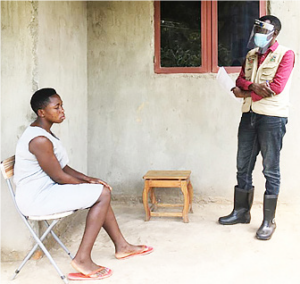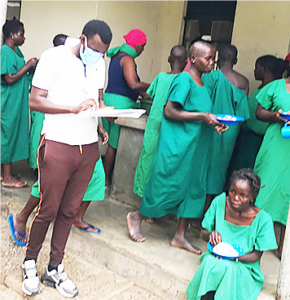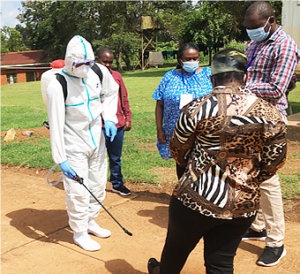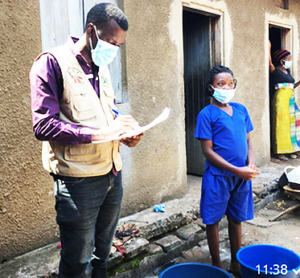 |
Geofrey AmanyaMSc. CEB (MUK), MSc (Ghent University), Field Epidemiology Fellow (UPHFP) Host Site: Butabika National Mental Hospital
|
||||
ABOUT THE FELLOWGeofrey Amanya holds a Master of Science in Clinical Epidemiology and Biostatistics from Makerere University. I joined this program in 2020 and what captured my mind is the training through service in applied epidemiology and public health leadership. I have been equipped with knowledge and skills through a hands-on experience. The program has complemented my previous training by engaging me in large dataset analyses, scientific writing, national level meetings, scientific presentations, trainings to mention but a few, hence building my capacity. I have attained a spirit of excellence and problem-solving skills in my practice as an epidemiologist. During my time as a Fellow, I was attached to the Butabika Hospital. While there, I led various trainings and supervisions, supporting mainly the strategic information and the prevention arms of the program and data systems reviews. Achievements at the Host Site
Program-specific deliverablesOutbreak investigations and other projects
Conference Presentations
Written Communication
Policy Brief
Newspaper Article
Manuscripts written
Summary of Epidemiological Study:Title: Individual and household risk factors for COVID-19 infection in households of infected persons in home based care in western Uganda, 2020 Authors: Geofrey Amanya1, Peter Elyanu2, Richard Migisha1, Daniel Kadobera1, Alex Riolexus Ario2, Julie R. Harris3 Organizational affiliations. Uganda Public Health Fellowship Program, National Institute of Public Health, Ministry of Health, Kampala, Uganda 2Baylor College of Medicine, Kampala, Uganda 3Division of Global Health Protection, US Centers for Disease Control and Prevention, Kampala, Uganda Correspondence email: Geofrey Amanya; geofreyamanya@gmail.com, Telephone: +256-777-100-032 Background: During November 2020, an increase in COVID-19 cases was reported among household members of COVID-19 patients managed using the home-based care (HBC) strategy in western Uganda. We identified factors associated with COVID-19 infections among these household members. Methods: We conducted a case-control and cohort study. Cases were PCR-confirmed SARS-CoV-2 infections diagnosed from 1-30 November 2020 among persons in HBC in Kasese or Kabarole Districts. We compared case-households (≥1 secondary case) to control-households (no secondary cases). The cohort included all case-household members. Data were captured by in-person questionnaire. We used logistic regression and generalised linear regression to calculate odds ratios and risk ratios. Results: We identified 78 case-households and 59 control-households. Case-households were larger than control-households (mean 5.8 vs 4.3 members, p<0.0001). Having ≥1 household member per room (OR=4.3, 95%CI 2.0-9.6) and a coughing primary case-patient (aOR=8.0, 95%CI 2.1-30.5) increased odds of case-household status. Assessment for suitability for HBC reduced odds of case-household status (OR=0.4, 95%CI=0.2-0.8). Being ≥40 years of age (OR=1.4, 95%CI 1.1-1.9), interacting with the primary case-patient (RR=1.6, 95%CI 1.2-2.2), and self-described lack of knowledge about HBC (RR=1.5, 95%CI 1.2-1.8) increased individual risk. Conclusion: Household and individual factors influence secondary infection risk in HBC. Decisions about HBC should be made with these in mind. Lessons Learnt
Key lessons learnt during the fellowship
|
|||||

|

|

|

|
